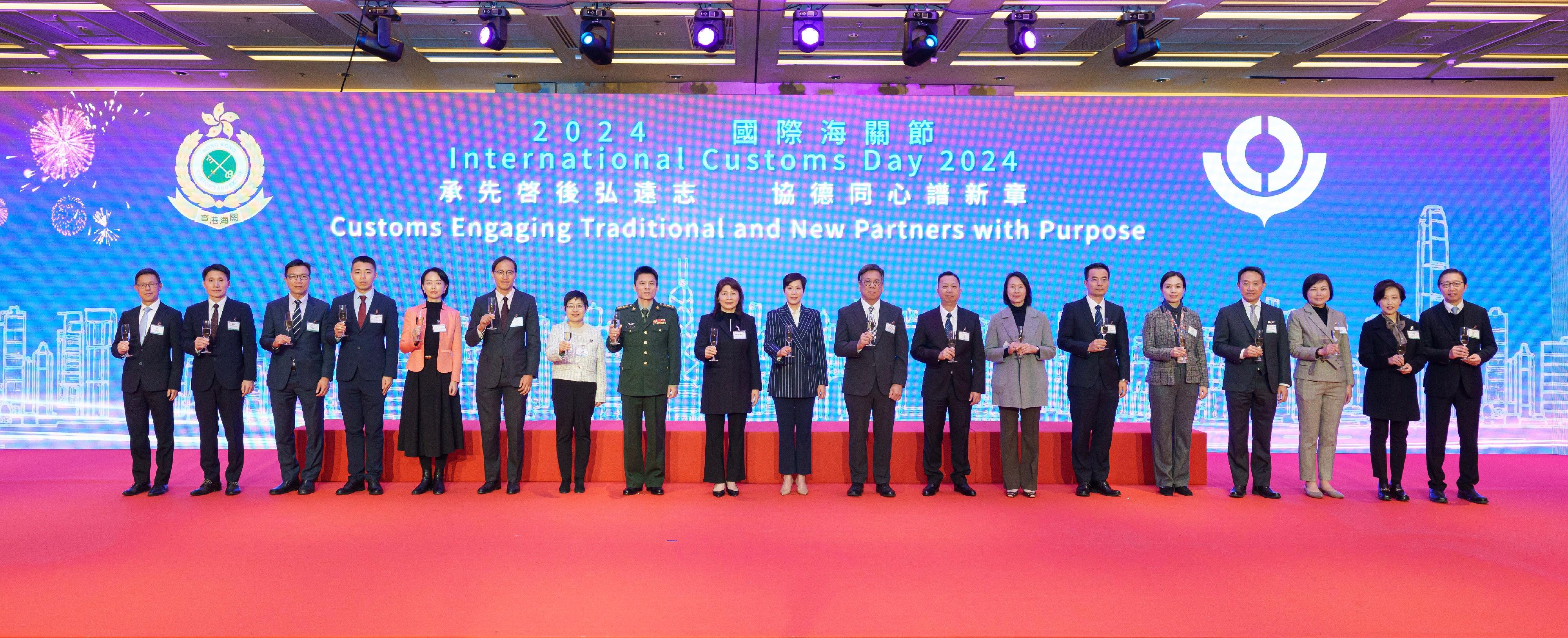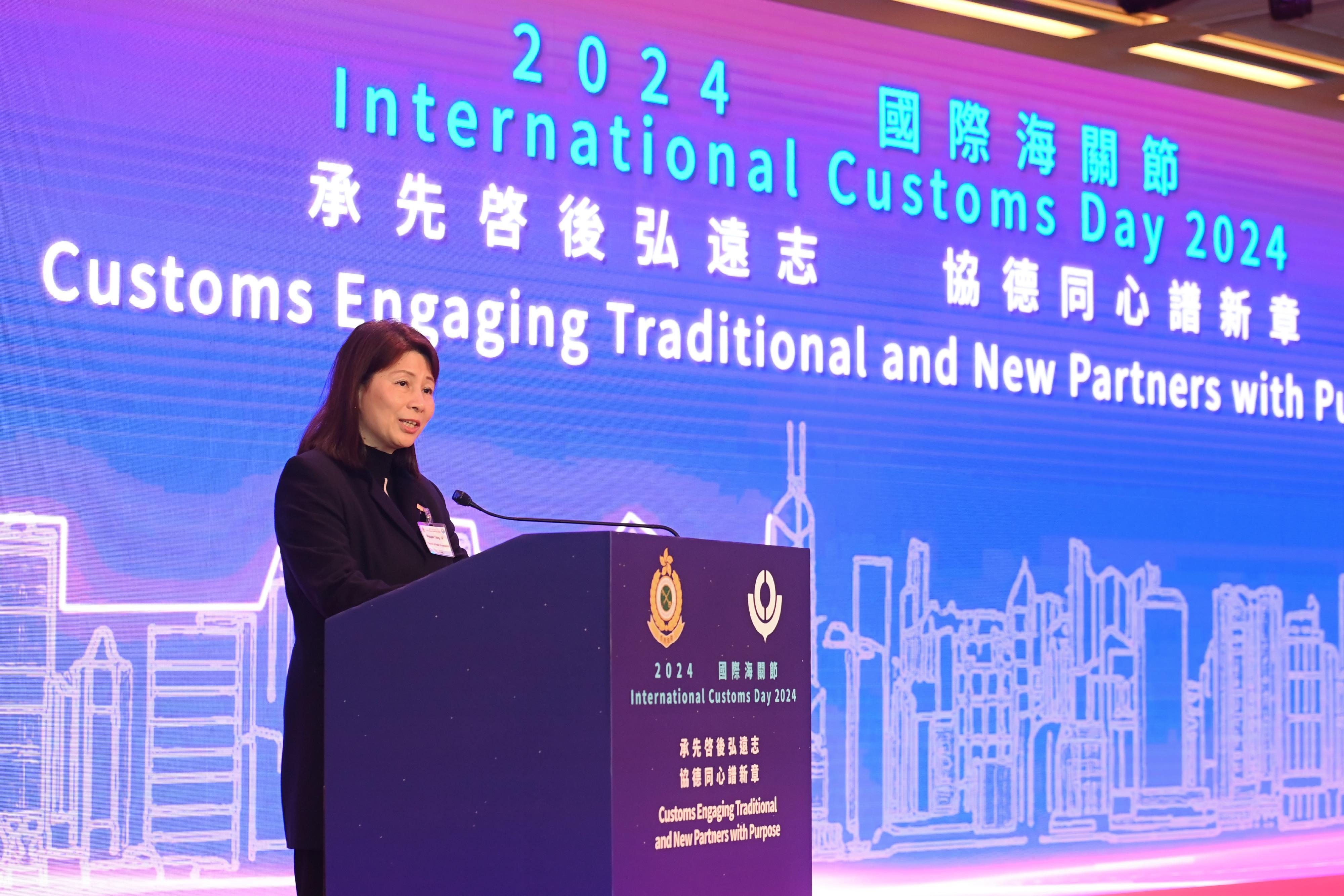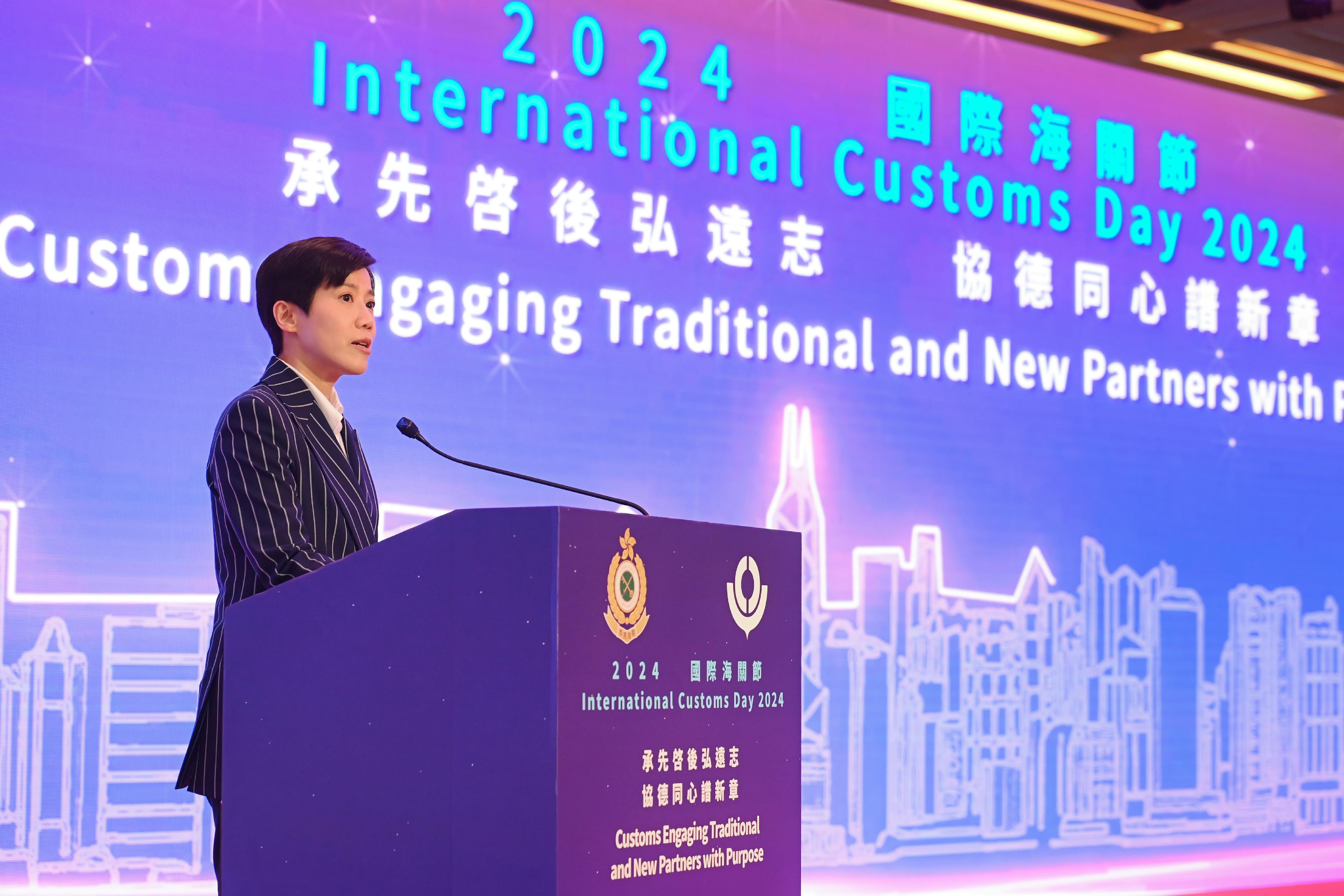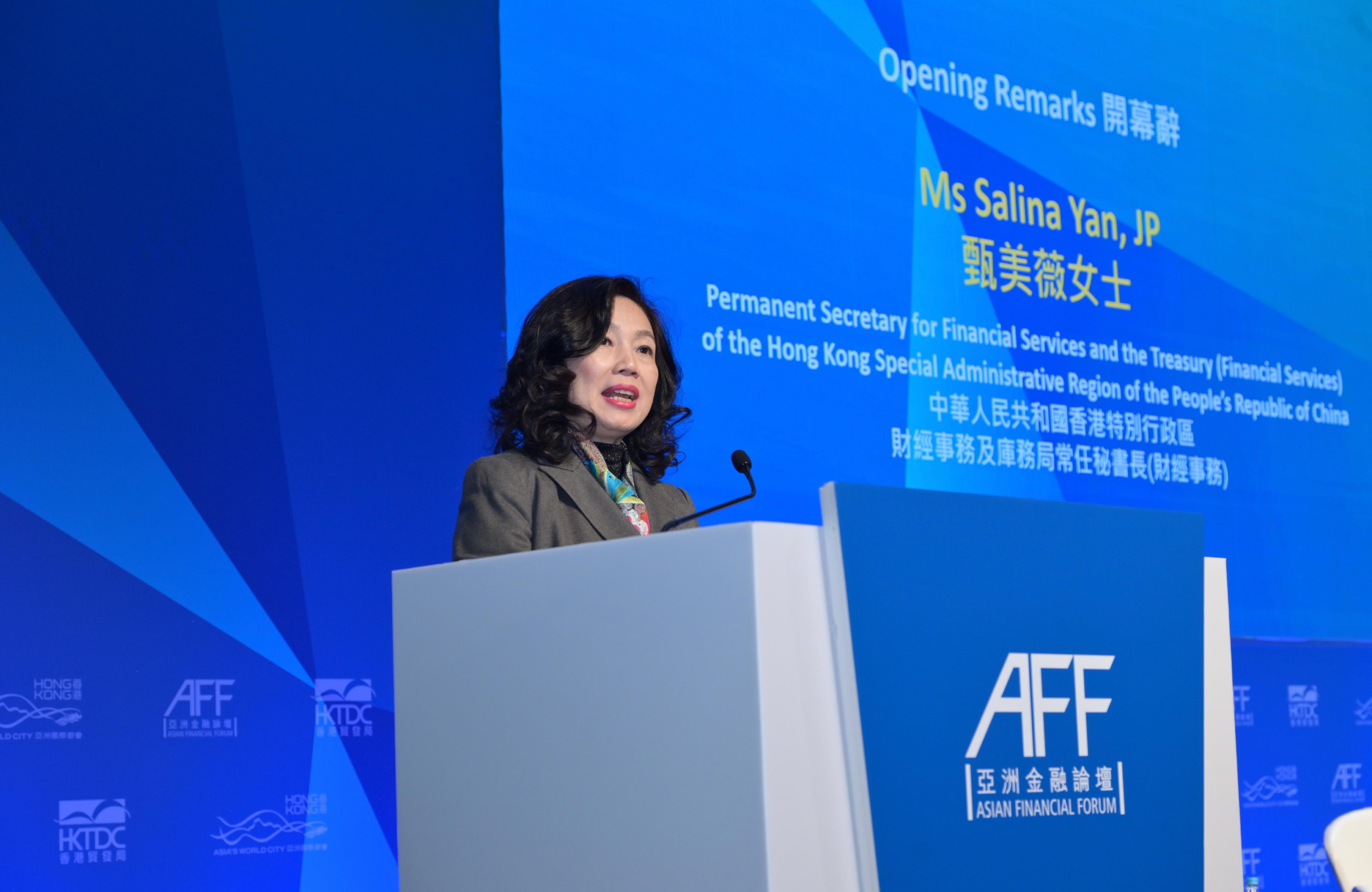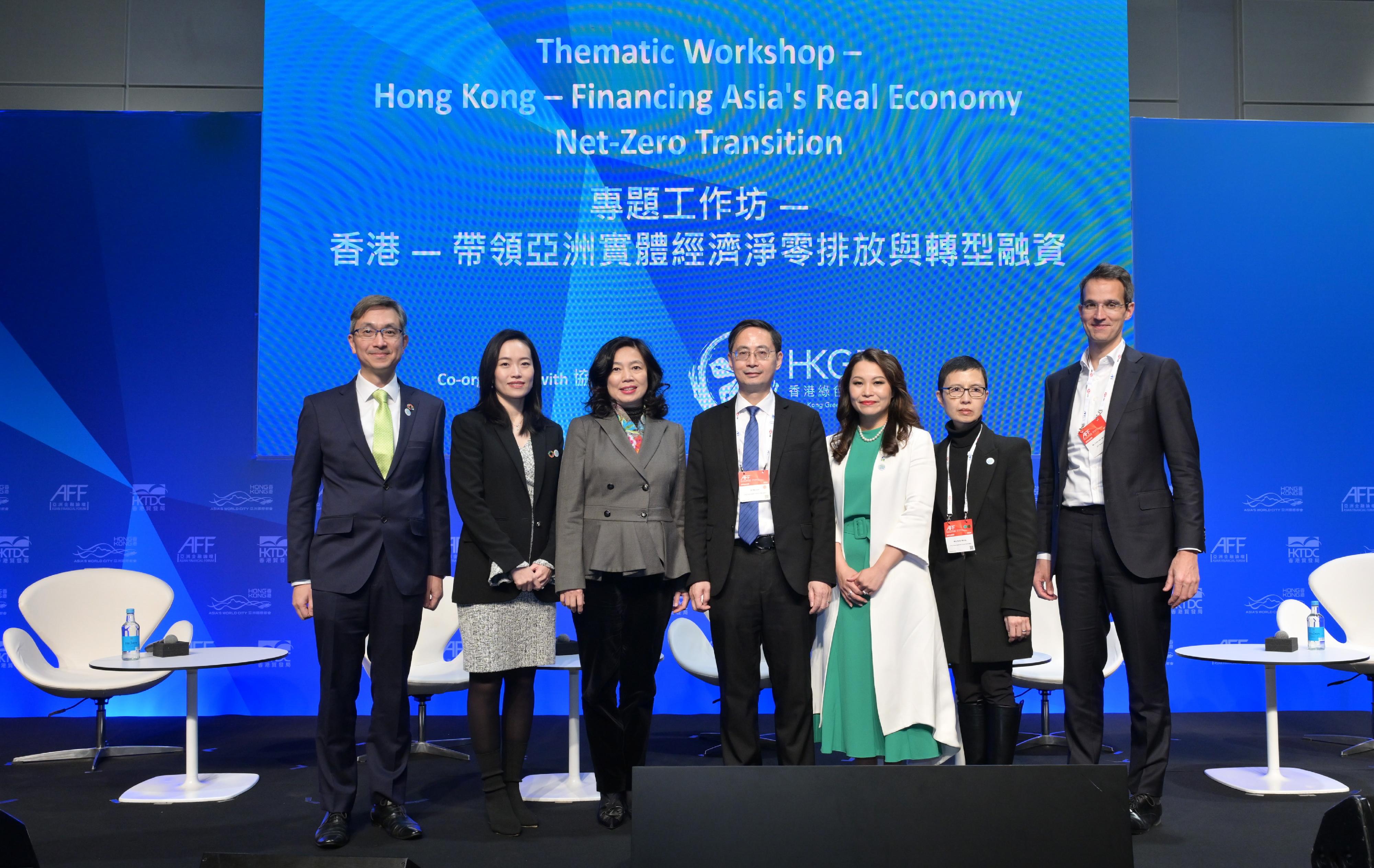Hong Kong Customs celebrates International Customs Day 2024 (with photos)
Officiated by the Director of Public Prosecutions, Ms Maggie Yang, and the Commissioner of Customs and Excise, Ms Louise Ho, a reception in celebration of International Customs Day (ICD) 2024 was held by Hong Kong Customs at the Hong Kong Convention and Exhibition Centre today (January 25).
This year, the World Customs Organization (WCO) has come up with the theme “Customs Engaging Traditional and New Partners with Purpose” for ICD, encouraging Customs administrations to actively strengthen ties with traditional partners while proactively exploring new collaborative opportunities, connecting various sectors to combat cross-boundary crimes and safeguard social security.
At the celebration reception, Ms Yang commended the unwavering dedication of Hong Kong Customs in safeguarding the security of the Hong Kong community and facilitating international trade. Not only has it maintained close collaboration with the industry in traditional law enforcement domains, but it has also actively combatted escalating illicit activities such as money laundering, cybercrime, smuggling of endangered species items and so forth. Additionally, Hong Kong Customs has demonstrated outstanding performance in enhancing international co-operation, especially in what will be its upcoming role as the WCO Vice-Chairperson for Asia/Pacific Region, which could fully leverage Hong Kong’s role as a “super-connector” under the Belt and Road Initiative in bridging the Mainland and global markets.
In her speech, Ms Ho highlighted Hong Kong Customs’ resolute commitment to enhancing co-operation with longstanding partners and seeking new collaborations with various stakeholders. Hong Kong Customs has actively pursued close partnerships by entering into Customs co-operative arrangements with 31 Customs administrations worldwide, including five from ASEAN (Association of Southeast Asian Nations) countries and members of the Regional Comprehensive Economic Partnership. Hong Kong Customs also attaches great importance to capacity building and provision of tailored support for its partners with a view to reinforcing regional enforcement against cross-boundary crimes as a whole. In addition to the Regional Customs High-level Drug Enforcement Forum and the Regional Drug Enforcement Capacity Building Workshop held last February and September respectively, Hong Kong Customs will continue to organise international conferences, including the 6th WCO Global Canine Forum and the Regional High-level Conference on Intellectual Property Protection this coming March, as well as co-ordinate regional joint operations.
In view of crimes due to the increasing prevalence of e-commerce, Hong Kong Customs has intensified its enforcement efforts with five major express courier operators in Hong Kong through the signing of memoranda of understanding to detect shipments containing illicit goods. By receiving relevant training on the latest modus operandi and criminal clues provided by Hong Kong Customs, express couriers could then fully co-operate with the department in combatting smuggling, enabling better detection and interception of contraband goods. Additionally, Hong Kong Customs maintains close communication with academics, the financial technology sector, the cyber security sector and the forensic accounting sector etc to stay updated on the latest trends in the cybercrime area and develop appropriate strategies. Meanwhile, Hong Kong Customs will continue to promote the Hong Kong Authorised Economic Operator Programme to attract more companies to join so as to enhance international supply chain security and facilitate the movement of legitimate goods.
Hong Kong Customs became a member of the WCO in 1987 and ICD has become an annual event of Hong Kong Customs ever since. At the celebration reception, Ms Yang presented WCO Certificates of Merit to Hong Kong Customs’ officers and business partners in recognition of their remarkable contributions to promoting customs-to-customs and customs-to-business partnerships.
Nearly 300 guests, including officials of the Government of the Hong Kong Special Administrative Region, members of the Executive and Legislative Councils, representatives of various offices of the Central People’s Government in Hong Kong and Customs administrations of the Mainland and Macao, Consuls-General, foreign Customs attachés, as well as private stakeholders, attended the reception.


